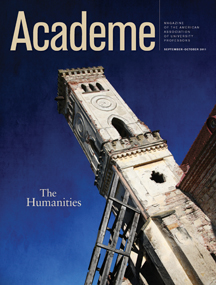American Association of University Professors
The AAUP's purpose is to advance academic freedom and shared governance, to define fundamental professional values and standards for higher education, and to ensure higher education's contribution to the common good. Our local chapter strives to articulate and support these principles at JCU. We support faculty both individually and collectively, and can call on the support of the national and state organizations if needed. We act to support and strengthen academic freedom and faculty contractual and governance rights as embodied through tenure, the Faculty Handbook and Faculty Council. We stand as an independent voice in matters of academic integrity and professional responsibility. While we work on behalf of all JCU faculty, regardless of membership status, we ask that you consider formal membership in order to strengthen our presence.
Friday, September 16, 2011
JCU Chapter General Meeting, Friday, 9/23, 3:30 pm
Refreshments (of the adult variety) will be served!! JCU faculty are welcome to attend.
Academe: Focus on the Humanities in Trouble
Academe: Magazine of the AAUP
 The road to dystopia is paved with both small cuts and big budget holes. Some of the cuts seem tiny, almost invisible; some of the budget holes so big, you could drive whole programs into them.
The road to dystopia is paved with both small cuts and big budget holes. Some of the cuts seem tiny, almost invisible; some of the budget holes so big, you could drive whole programs into them.Friday, September 9, 2011
News: A Dissenter Is Fired - Inside Higher Ed
News: A Dissenter Is Fired - Inside Higher Ed:
Friday, September 2, 2011
News: 'Under New Management' - Inside Higher Ed
News: 'Under New Management' - Inside Higher Ed